Revere, BayCare’s first full-time facility dog, brings comfort to young cancer patients during treatments
TAMPA, Fla. - September marks Childhood Cancer Awareness Month, and 400,000 children and teens will develop cancer each year, according to the World Health Organization.
Caridee Barchett, 15, was diagnosed with Stage 1 brain cancer. Barchett said she and her mom, Elizabeth Speedy, drive an hour every Monday from their home in Winter Haven to receive treatment at St. Joseph's Children's Hospital in Tampa.
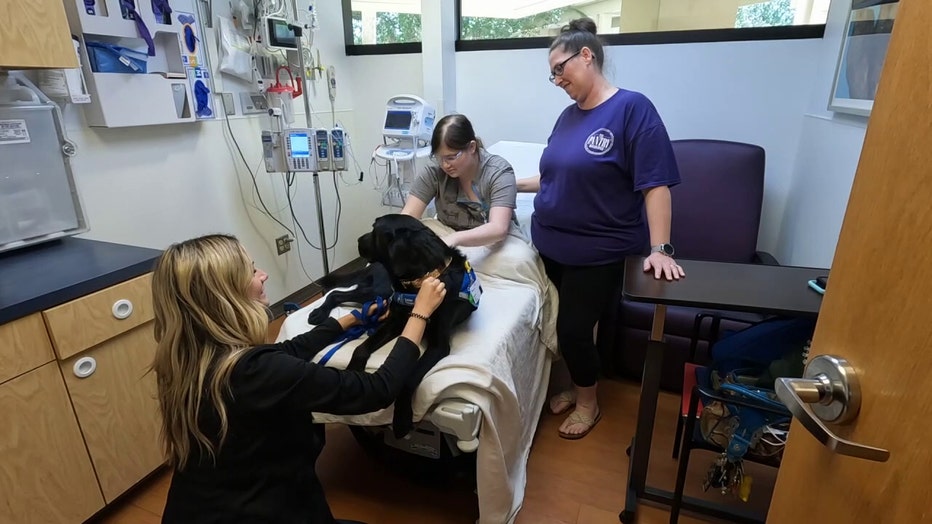
Her mom noticed something wasn't right with her daughter this past Spring. She was having trouble walking and keeping food down.
READ: Cancer rates increasing among younger people, doctors encourage screenings
"I took her to the ER, and they found a mass on her brain," Speedy said.
Barchett was life-flighted to St. Joseph's Children’s Hospital for emergency surgery to remove the mass. The confirmation of cancer came shortly after.
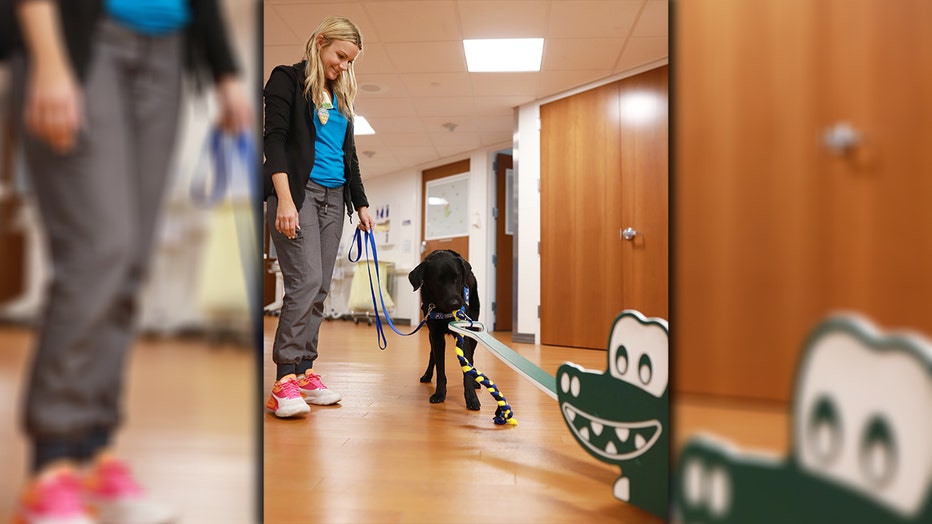
"It's not something you expect to see or want. I deal with it the best I can," Speedy said through tears.
Her treatment will last 18 months. It’s a lot of hours spent at a hospital, but she's not doing it alone.
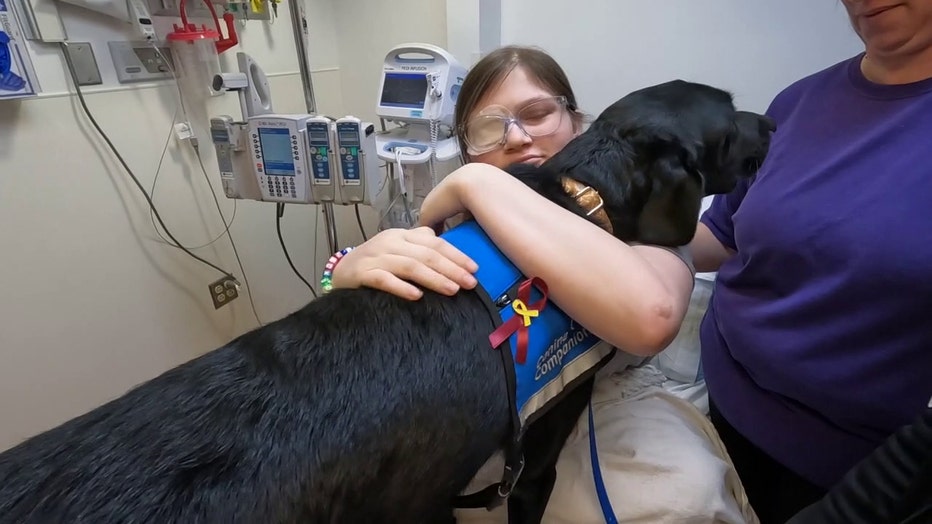
Barchett has Revere by her side for most treatments.
Revere, a black lab, is BayCare's first full-time facility dog, and he works alongside his handler Hannah Murray, a certified child life specialist.
"He'll lie with kids during their procedures sometimes just having him lay on their lap while they're getting an IV or their port accessed," Murray said. "I’ve seen a tremendous difference in how traumatic those procedures can seem to kids without Revere there vs. with Revere there."
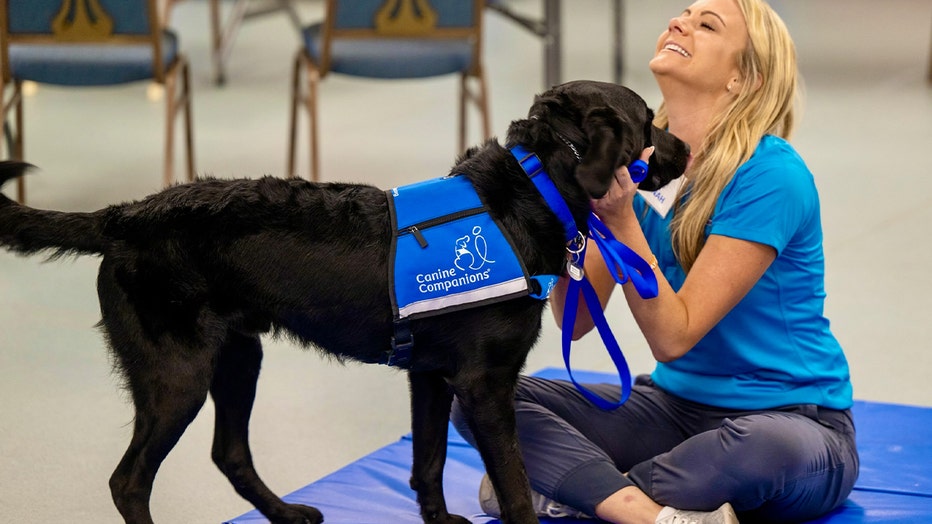
Revere was trained in over 40 commands with Canine Companions, one of which includes playing UNO. Revere is by Murray's side 40 hours a week.
"A lot of the staff and patients have noted that he has this little prance, trot when he's walking in the hospital his tail is just wagging the whole time, and he’s just excited to get here and get to seeing kids," Murray said.
HEALTH: Artificial intelligence helping detect early signs of breast cancer in some US hospitals
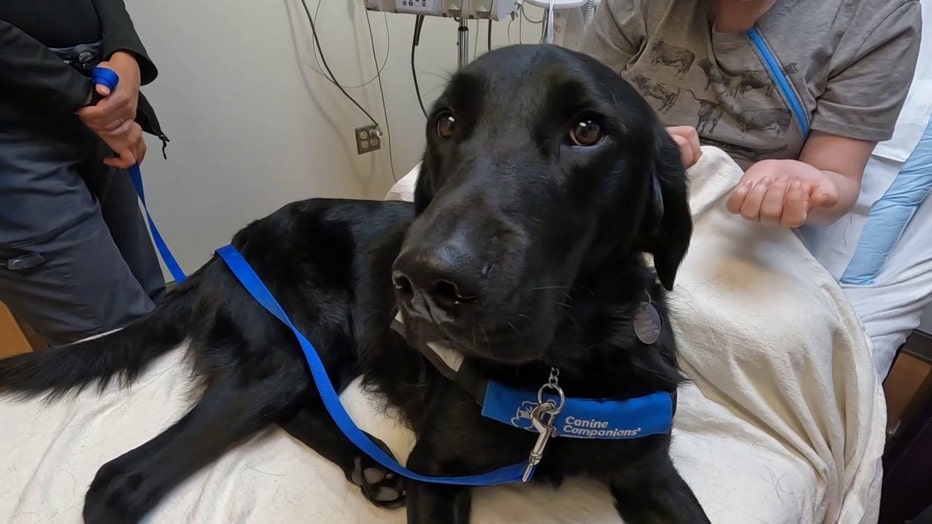
Revere has his own bed in Murray’s office to take plenty of naps in between visits.
Speedy said visits from Revere have helped her daughter.
"When Revere comes in, she like lightens up like it’s a big difference. I like to see that smile on her face," explained Speedy.
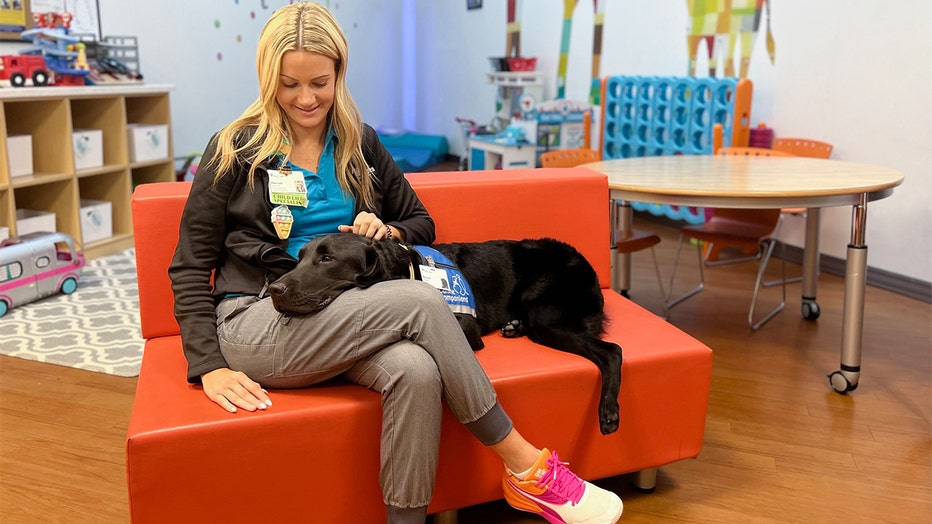
The dog's presence offers a sense of security that helps young cancer patients forget – even just for a moment – why they're here.
"It’s incredible, dogs can just have an impact on people and kids that we as humans cannot provide that comfort that a dog can," Murray explained.
The nurses at St. Joseph’s Children's Hospital said this month is also a celebration of the success they have in treating childhood cancer. The World Health Organization said 80% of children with cancer are cured when detected early and treated.


